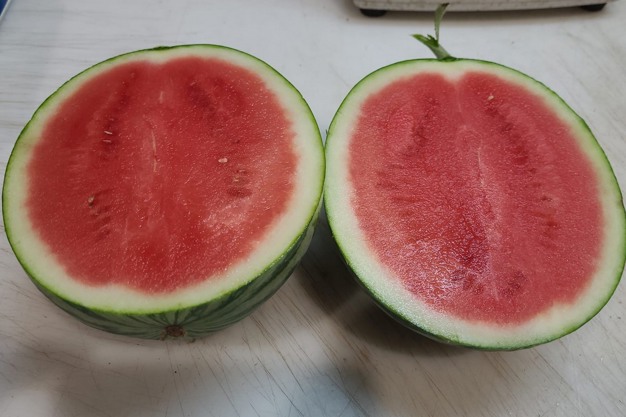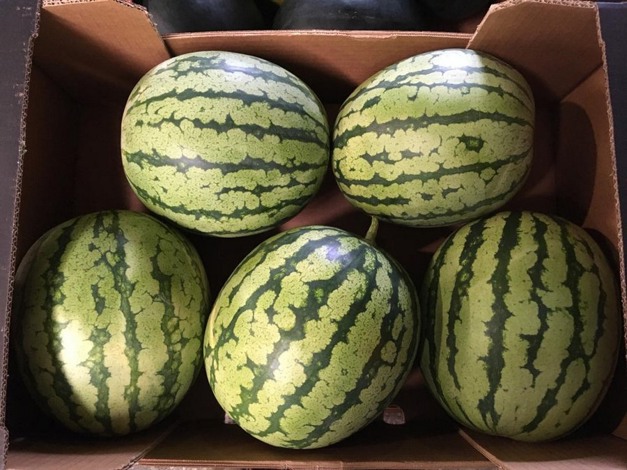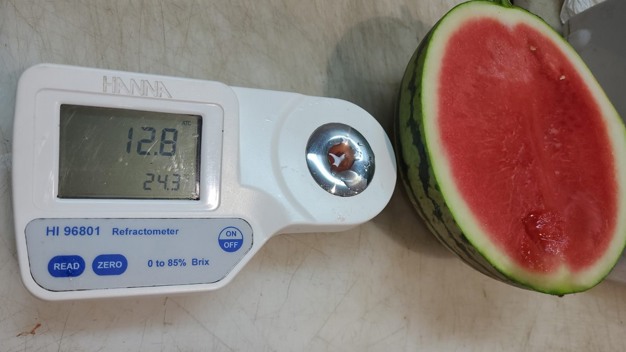The season for mini watermelons in Portugal is looking positive, as planting will still be successful despite the rains, says Tania Silva, who does sales for Rush Farms Portugal: "We had very rainy weather during the time to plant the mini watermelons. Fortunately, we were able to plant in time, because we have at least four types of soil, one of them being sandy. This allows us to not wait until the soil dries until we are able to plant. So our expectation is to have Portuguese product in four weeks' time, although due some client requests, we are also handling some mini watermelons from Senegal, to ensure we comply to all of their needs."

According to Silva, the smaller size of the mini watermelon provides several benefits, including causing less waste. "The mini watermelon is a good alternative for the regular watermelons. Being small, you can store these fruits in the fridge easily, and have regular fresh fruits. For supermarkets it helps to avoid loses due the short shelf life after large watermelons have been cut. Our main market is France, where we supply retail chains. At one time these retailers were looking for high quality products, and our brix levels fit with their requirements. However, we currently notice a huge demand and interest from both the UK and Germany, especially from retailers and the retailers' main suppliers in these countries. This interest increased significantly after the previous seasons, when other countries struggled with the weather conditions, and lost part of their production."
Although the production for mini watermelons and melons for Rush Farms Portugal does increase, they are very picky and careful when and how to expand, Silva explains: "In terms of our acreage, this is increasing year by year. Once we produce in an area, we still follow regenerative farming, to avoid compact soils and manage acceptable health nutrition and residues in soils. All of the increase in acreage is managed to be suitable with these standards in mind. We have other products and we need to ensure good farming practices, as well as good water management."

The season isn't all about the mini watermelons though. Silva emphasizes that they've seen an increase in interest for the traditional melon varieties as well. "There is some interest in yellow mini watermelons, but on the other hand, the ancient varieties in melons have experienced a new enthusiasm from consumers. We're noticing this especially on the French market. Otherwise, a really good brix level is better than any other points. We realise that there will be less melons available than last year, when it comes to Galia and Cantaloupe melons. As such, we're preparing both ourselves and clients to ensure that we have sufficient volumes to fill the programs with them."

Thanks to cooperation with other origins, Rush Farms now aims to be able to supply melons year-round, as their clients are looking for a stable program across the entire year: "Our season will start in June, with Portuguese production. It will run until the end of September or the middle of October, depending on the rains during the season. But meanwhile, we start to supply some clients with the production from Senegal. This has only been a trial, but so far, so good, and we have no reason not to continue with this arrangement. Our clients ask us to help them to start the season earlier than we are able to, but with similar quality as our own production. Senegal proved a viable solution. Due this situation, we're considering working all year round with this product, moving to other origins once our season ends. We want to supply a solution all year round for our clients, while still prioritizing our own production," she concludes.
For more information:
Tania Silva
Rush Farms Portugal
Email: [email protected]
www.rushgroup.co.uk
